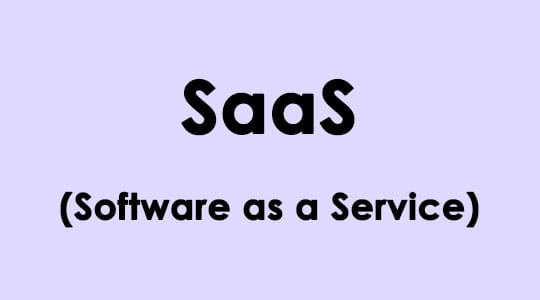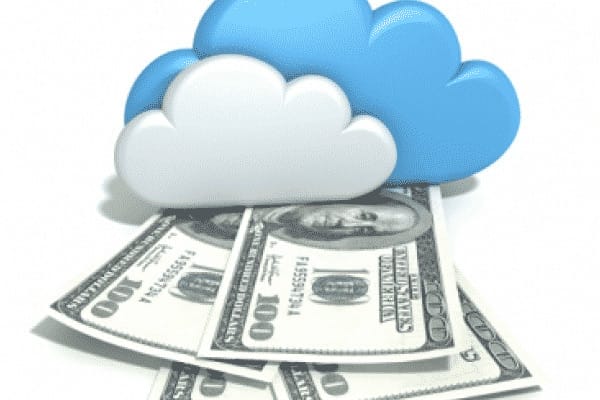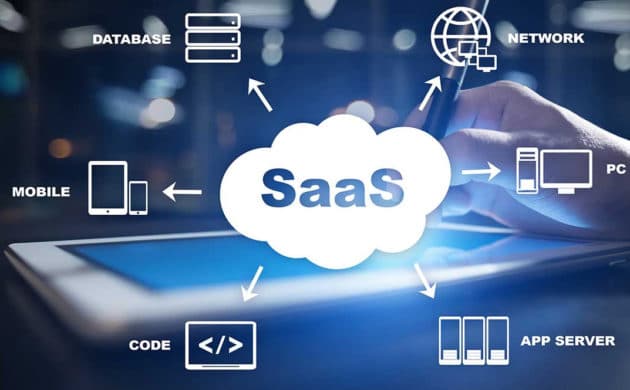The development of SaaS (wiki) has been attributed to the new technological revolution. With the success of this business, many industries are becoming increasingly intrigued about how SaaS functions and how they may profit from it.
In addition, technologies have advanced over time, resulting in websites and application programs that allow you to run your SaaS business with convenience and profit every day.
SaaS for money?

But for all the curious minds out there, have you ever wondered how SaaS businesses make money?
Isn’t it obvious? A company that provides its services for free, how is that supposed to generate revenue? But, what if we told you that it does? Yes, it’s true!
Many SaaS services are supplied for free or come with free variants; while improved SaaS is accessible at a reasonable fee and regularly subscribed. The critical distinction between one SaaS firm and a tech company is that SaaS hosting takes place on the cloud.
This fact eliminates the necessity for an end-user license for application stimulation or any other means of hosting the software. Tech-based companies, on the other hand, must obtain a license to operate.
This way, it becomes possible for SaaS enterprises to host their customers’ memberships. All that the client needs to do is simply log in to their profile to gain limitless access.
Recommended for you: SaaS Application Development: Tips & Tricks.
How does SaaS business generates revenues?

Revenues are a confusing part of the SaaS business model! Unless you’re venturing into a new market, there are just enough competitors to help you compare your offering and pricing.
There are multiple models to generate revenue with a SaaS Business, let’s figure them out:
Monthly recurring subscription

The monthly recurring subscription is a model where customers pay a recurring fee every month. This model allows businesses to generate revenues on a monthly basis. However, the end goal of such a model is to get the maximum monthly subscriptions.
Yearly recurring subscription

As the name suggests, this model generates revenue via a yearly subscription fee. Here, the customer needs to pay yearly charges to use the software. Interestingly, in such models, SaaS companies are known to provide additional discounts for users who subscribe to them.
Usage-based

This is a rather unique revenue-generating model where customers pay, depending on the amount of software they use. Here, customers are introduced to different tiers of pricing. It includes a Freemium-based subscription model, a premium, and a basic or deluxe plan.
How SaaS makes money for an individual?

The system engineer and distributor do a few tweaks in SaaS. Small to medium-sized businesses frequently seek assistance from a SaaS distributor on expanding their growth and profitability from the SaaS business model.
The SaaS reseller strives to generate revenue by scaling your operations from a large proportion of low-complexity projects to an increased volume of high-complexity projects. If you want SaaS to set you up for life, you should focus on sales figures and aim to make extra income from your clientele’s subscriptions.
You must devote most of your time to integration building and creating custom apps for your customers to run well within the SaaS platform to make significant revenue from SaaS.
With a SaaS business model, your application hosting provider is in charge of storing data that your customers don’t wish to keep.
SaaS for beginners

The term SaaS stands for Software as a Service. SaaS is a software deployment model that allows customers to access information anytime, having a net connection and an internet browser. Applications must be licensed, and subscriptions must be paid regularly to retrieve information.
SaaS products are often referenced as a “hosted solution” or “web-based quick fix” because the software provider hosts their service on their systems.
SaaS products are frequently referred to as “cloud-based” services. On the other hand, a desktop-based approach is one in which an individual or corporation downloads software on their desktops and runs it on their systems. You’ll also have to be able to swiftly communicate this broad advantage and transcend it with the product offering of your solution for your own company.
Key benefits of SaaS business model

The key benefit of the SaaS business model is that you won’t have to spend a lot of money on upkeep since suppliers submit modifications and the software simply distributes them to users.
1. No need for external service

Registering for this SaaS business model is simple, and you are given a free sample. Since it does not help a regular person, the self-service SaaS model is simple and easy to understand.
To put it another way, it’s more of a demonstration. The self-service SaaS model allows you to join up for a low-cost plan that includes a free trial demonstration. This will help you get more clients as a SaaS company.
2. Interpersonal model

The transactional SaaS approach has a little higher price tag. Clients will be able to enroll using this model. But they will also have the opportunity to meet with a real salesperson who will try to convert the free trial subscriptions into paid ones.
The commercial SaaS models are well-suited to the corporate processes that occur in many companies. They’re simple to set up. You’ll make a lot of money since clients will pay extra for premium features from you, the supplier. In addition, it is usually a good idea to provide clients with online support in the form of videos and lessons.
3. The Software as a Service (SaaS) model for businesses

The enterprise model is a little more complicated, but it will provide a lot more value to your clients. It allows you to charge a higher price for it. The marketing cycle in this kind of SaaS model is typically longer, lasting up to six months, necessitating the hiring of sales personnel.
Key commercial stages in SaaS

There are three primary stages to every SaaS business setup that you will go through to earn a decent amount of money.
The following are the three different stages:
You may like: 5 Must-Have SaaS Tools to Increase Customer Satisfaction.
1. The origin of progress

The beginning phase of your SaaS business model is the most important. Here you launch your SaaS firm and begin marketing it to gain your first clients.
2. Phase of rapid expansion

In its second phase, you’ll be able to gather new clients for your SaaS firm, based on the feedback on your product. If the overall feedback is positive, you’ll notice expansion as your company implements your technology. As your business expands, you’ll need more money to cover data enlargement, bandwidth, and all of the other practicalities you’ll need to support your rising number of clients properly.
It’s vital to remember that SaaS clients will adore your items because they won’t have to build their own IT architecture. After all, SaaS already supplies it when they sign up for a subscription.
3. Golden goose in stable form

The stable golden goose period of the SaaS business is when your company is at the peak of innovation, and you’re making good money. You won’t have to go through hypergrowth at this point because your SaaS business is steady, and all of your funds are taken care of.
In addition, as a result of your present customers acting as advocates for your SaaS goods, you’ll be able to gain new clients at a rapid rate.
Benefits and drawbacks of SaaS model

Benefits:

Since your SaaS solution completely depicts what they demand to retain their businesses afloat, SaaS customers frequently become committed customers for your service.
Each SaaS consumer rents your program repeatedly, necessitating periodic payments rather than having all of the permissions to acquire the products in one go.
Drawbacks:

The monthly subscriptions from your clients are not large enough to maintain you for a long time. So, you will need to concentrate on recruiting new consumers constantly.
You’ll have to pay for the top developers, engineers, and UI strategists to get the most excellent SaaS products for your organization that are both user-friendly and efficient.
Is SaaS a reliable business model for the future?

If you look at it, SaaS is certainly a business for the future! Looking at the post-pandemic conditions, we’re now living in an era of digitized future. SaaS is the future of operations for innovators across every industry.
Now, if you are wondering whether or not you can venture into the field, you could give it a try! Looking at the future that software holds; you could even be a part of the industry if you’re not well-versed with the field.
You may also like: Top 10 Fast-Growing SaaS Applications to Follow.
Conclusion

The software-as-a-service (SaaS) business model is gaining traction around the globe. Establishing a sales A-team and designing a fail-safe business strategy for that organization are two of the most vital factors any best SaaS company can do to guarantee its continuous progress and growth. However, before you start investing in this type of company, you should have a thorough understanding of how it runs and how you may profit from it. Remember, it is all about making the right choices at the right time!
This article is written by Ankit Thakor. Ankit is a marketer by trade and a football player by passion. He is a Saas Marketing Specialist at SoftwareWorld. He specializes in using compelling content to capture consumer dollars for world-class SaaS brands, including Zoho, Freshworks, ClickUp, and more. Follow him: LinkedIn | Twitter | Quora.
 This article is written by Ankit Thakor. Ankit is a marketer by trade and a football player by passion. He is a Saas Marketing Specialist at SoftwareWorld. He specializes in using compelling content to capture consumer dollars for world-class SaaS brands, including Zoho, Freshworks, ClickUp, and more. Follow him:
This article is written by Ankit Thakor. Ankit is a marketer by trade and a football player by passion. He is a Saas Marketing Specialist at SoftwareWorld. He specializes in using compelling content to capture consumer dollars for world-class SaaS brands, including Zoho, Freshworks, ClickUp, and more. Follow him: 




